- English
- Español

Country Visits
2019
El Salvador, December 2 - 4, 2019

The Inter-American Commission on Human Rights (IACHR) concluded its on-site visit to El Salvador from December 2 to 4, which aimed to observe on the ground the human rights situation in the country, in particular, issues related to citizen security and the situation of persons deprived of liberty; memory, truth, justice, and access to justice; the situation of the rights of women and LGBTI persons; and the situation of migrants, displaced persons and economic, social, cultural and environmental rights. Additionally, as transversal axes, it paid attention to freedom of expression, the situation of human rights defenders and justice operators, and other groups at particular risk.
The visiting delegation was made up of the President of the IACHR, Esmeralda Arosemena de Troitiño, the First Vice President, Joel Hernández, the Second Vice President, Antonia Urrejola; Commissioners Flavia Piovesan and Margaret May Macaulay - Country Rapporteur for El Salvador - and Commissioner Luis Ernesto Vargas. The delegation was also made up of the Executive Secretary, Paulo Abrão, and technical staff of the Executive Secretariat.
2018
Nicaragua, May 17 - 21, 2018

On May 3, 2018, given the serious violence in Nicaragua, the IACHR unveiled plans to set up a Rapid and Integrated Response
Coordination Unit (SACROI, by its Spanish acronym) to focus its attention on the human rights situation in that country.
Later, on May 17-21, 2018, the IACHR carried out a working visit to Nicaragua, to conduct a preliminary on-site
observation of the human rights situation in the country, in the context of the violence that took place there from April 18, 2018, to document those events and issue the Commission's first concrete recommendations for the Nicaraguan State.
The IACHR deployed three teams and visited four cities (Leon, Managua, Matagalpa and Masaya), as well as State facilities, healthcare centers, hospitals, detention centers and the Institute of Forensic Medicine. On May 21, the IACHR published its Preliminary Observations on the visit.
The delegation was led by Commissioner Antonia Urrejola, IACHR Rapporteur for Nicaragua, who was supported by Commissioner Joel Hernandez, Rapporteur on the Rights of Persons Deprived of Liberty; and Commissioner Francisco Eguiguren, Rapporteur on the Rights of Human Rights Defenders. The delegation was also assisted by Paulo Abrão, Executive Secretary; Maria Claudia Pulido, Assistant Executive Secretary for Monitoring, Promotion and Technical Cooperation on Human Rights; the Special Rapporteur for Freedom of Expression, Edison Lanza, and the Special Rapporteur for Economic, Social, Cultural and Environmental Rights, Soledad Garcia Muñoz, and by the specialists of the Executive Secretary.
Through the SACROI unit, the IACHR continues to monitor the serious, ongoing human rights crisis in Nicaragua.
2017
Guatemala, July 31 to August 4, 2017

The Inter-American Commission on Human Rights (IACHR) made an on-site visit to Guatemala from July 31 and August 4. The IACHR observed on the ground a serious situation of inequality and discrimination that particularly affects indigenous people; women; displaced persons; lesbian, gay, bisexual, trans, and intersex persons (LGBTI), Afro-descendant persons, persons with disabilities; persons deprived of liberty; and children and adolescents.
The IACHR verified the persistence of multiple factors that contribute to a situation of structural impunity. In addition, the Commission received information regarding the State's authorization of extractive industry activities and projects and development of natural resources in indigenous peoples' territories, without prior consultation to obtain consent. The IACHR also received information on violence against journalists, as well as on the concentration of media ownership. The Commission drew attention to the particularly vulnerable situation that women in Guatemala continue to face, especially indigenous women. Likewise, the IACHR received with great concern the lack of recognition of Afro identity in the country. In relation to the rights of LGBTI persons, the Commission expressed its concern regarding the draft "Law for the Protection of Life and Family," which seeks to ban teaching about sexual diversity and reaffirms the nature of marriage as a right exclusive to persons of the opposite sex. The IACHR received extensive information on how multiple causes have led to the forced displacement of tens of thousands of people, contributing to the crisis of displaced persons and refugees. As to the situation of persons deprived of liberty, the prison system is mainly characterized by overcrowding, excessive use of pretrial detention, deplorable detention conditions.
The IACHR visited the Casa Para Niños Aleluya; the Juvenile Center for the Deprivation of Liberty for Men (CEJUPLIV “Stage II”), in San José Pinula; the Youth Center for the Deprivation of Liberty for Women (CEJUPLIM- “Gorriones”); the jails located in Basement 1, of the Tower of Courts of the Judicial Organism; the Santa Teresa Preventive Detention Center for Women; the Women's Guidance Center (COF), the Pavón Penal Rehabilitation Farm, and the “Federico Mora” National Mental Health Hospital.
Finally, the IACHR found that, despite the important progress in the fight against corruption and impunity led by the International Commission against Impunity in Guatemala (CICIG) and the Public Prosecutor's Office, as well as the efforts of some judges-a series of challenges identified by the IACHR in its country report continue to exist today.
2015
Mexico, September 28 to October 2, 2015
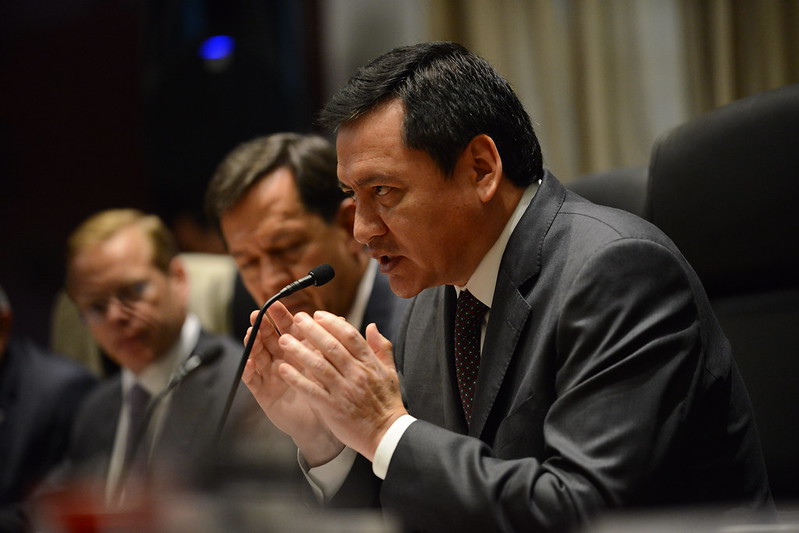
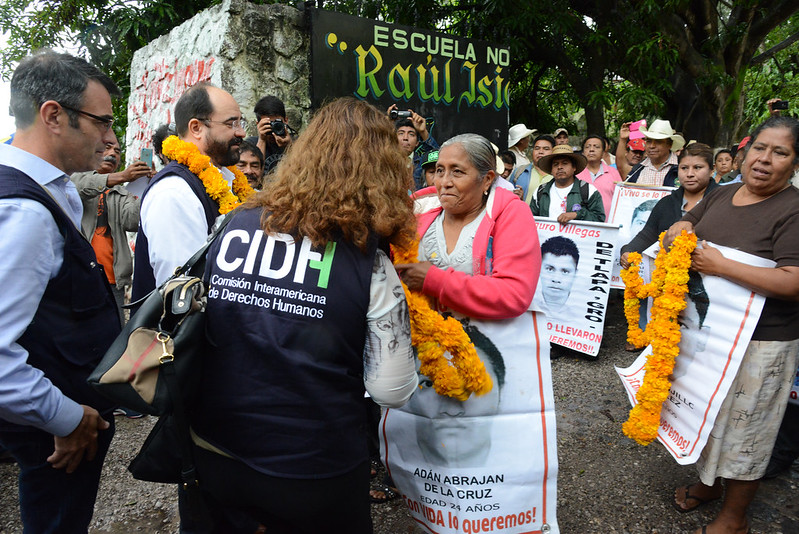

The IACHR carried out an on site visit to Mexico from September 28 to October 2. The Commission has been able to confirm on the ground the serious human rights crisis Mexico is experiencing, which is characterized by a situation of extreme insecurity and violence; serious human rights violations, especially forced disappearances, extrajudicial executions, and torture; critical levels of impunity; and inadequate and insufficient attention to victims and their families. The effect of the violence and violations of fundamental rights is especially serious and disproportionate for people living in poverty, migrants, asylum seekers, refugees, internally displaced persons, women, children, adolescents, human rights defenders, journalists, indigenous peoples, and gays, lesbians, bisexuals, and trans persons (LGBT), among others. Violence against families of victims, human rights defenders and journalists is carried out with the aim of silencing complaints and calls for truth and justice, and perpetuating impunity for gross human rights violations. Violence and intimidation seeks to silence the voices that Mexico most needs.
The Inter-American Commission confirmed the profound gap between the legislative and judicial framework, and the daily reality that millions of people in the country experience. Again and again, throughout the country, the Commission heard from victims that the process of justice is a "simulation." Consequently, at the conclusion of its visit, the Commission expressed it is necessary to address the structural causes of the lack of access to justice in Mexico, such as the infiltration by groups of organized crime in many police bodies, especially at the municipal level, as well as in agencies of the justice system. It is fundamental to strengthen and consolidate judicial independence in Mexico.
2010
Honduras, May 15 - 18, 2010
The purpose of the Commission’s visit to Honduras in May 2010 was to follow up on the onsite visit it had made in August 2009. The delegation was composed of the Chair of the IACHR, Felipe González; the First Vice-Chair, Paulo Sergio Pinheiro; Executive Secretary Santiago A. Canton; the IACHR Special Rapporteur for Freedom of Expression, Catalina Botero; the coordinator for Mesoamerica and the Spanish-Speaking Caribbean, Isabel Madariaga; the attorney of the Office of the Special Rapporteur for Freedom of Expression, Ramiro Álvarez-Ugarte; and document technician Gloria Hansen.
During the visit, the IACHR met with authorities from the three braches of government. It also held meetings with human rights defenders, journalists, civil society representatives, and members of the Truth and Reconciliation Commission. In addition, it met with representatives of the United Nations system in Honduras and with ambassadors from the Stockholm Declaration Follow-Up Group. After the visit, the IACHR published its Preliminary Observations of the Inter-American Commission on Human Rights on its Visit to Honduras, May 15 to 18, 2010 .
2007
Mexico, April 9 - 14, 2007
The Unit for Human Rights Defenders joined IACHR Chair Florentín Meléndez on a visit to Mexico, which took place April 9-14, 2007. During the visit, the Unit met with human rights defenders and received up-to-date information on their situation in that country. The IACHR Chair also made a presentation, alongside State authorities and human rights defenders, of the Report on the Situation of Human Rights Defenders in the Americas.
2006
Bolivia, November 12 - 17, 2006
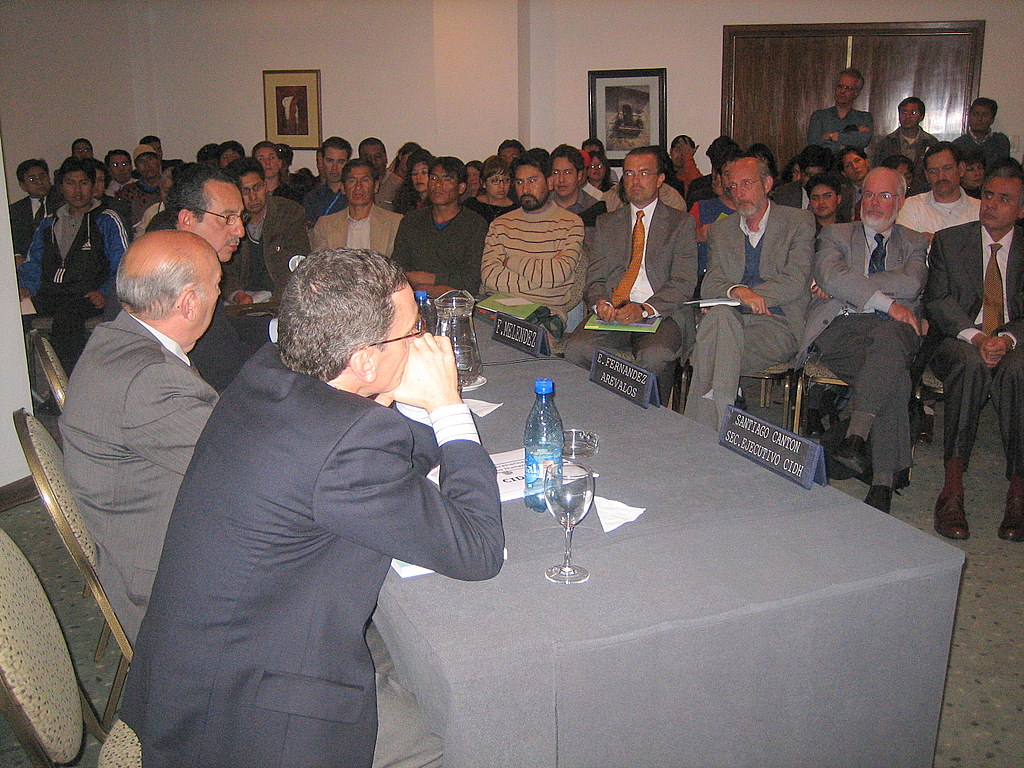
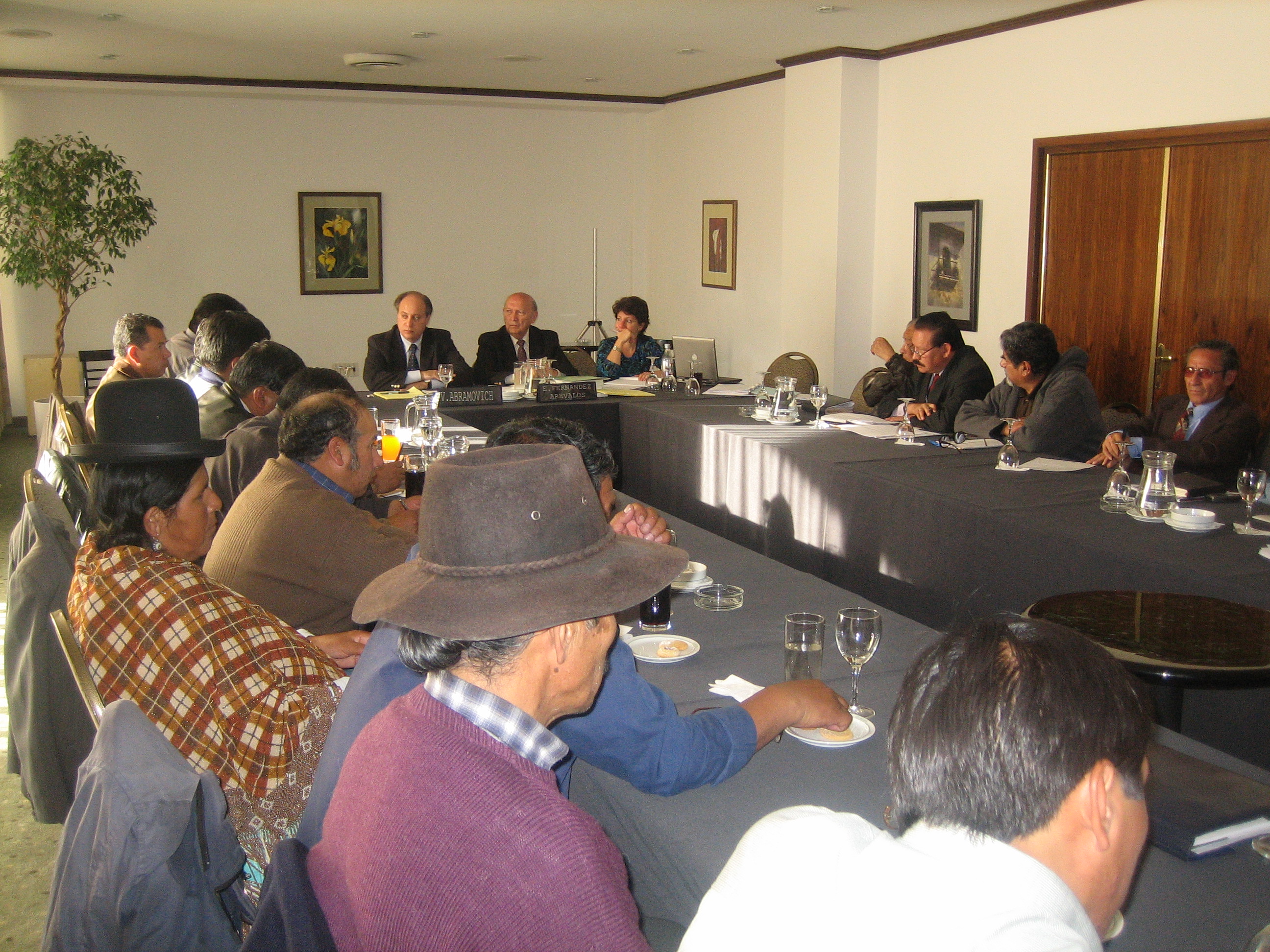
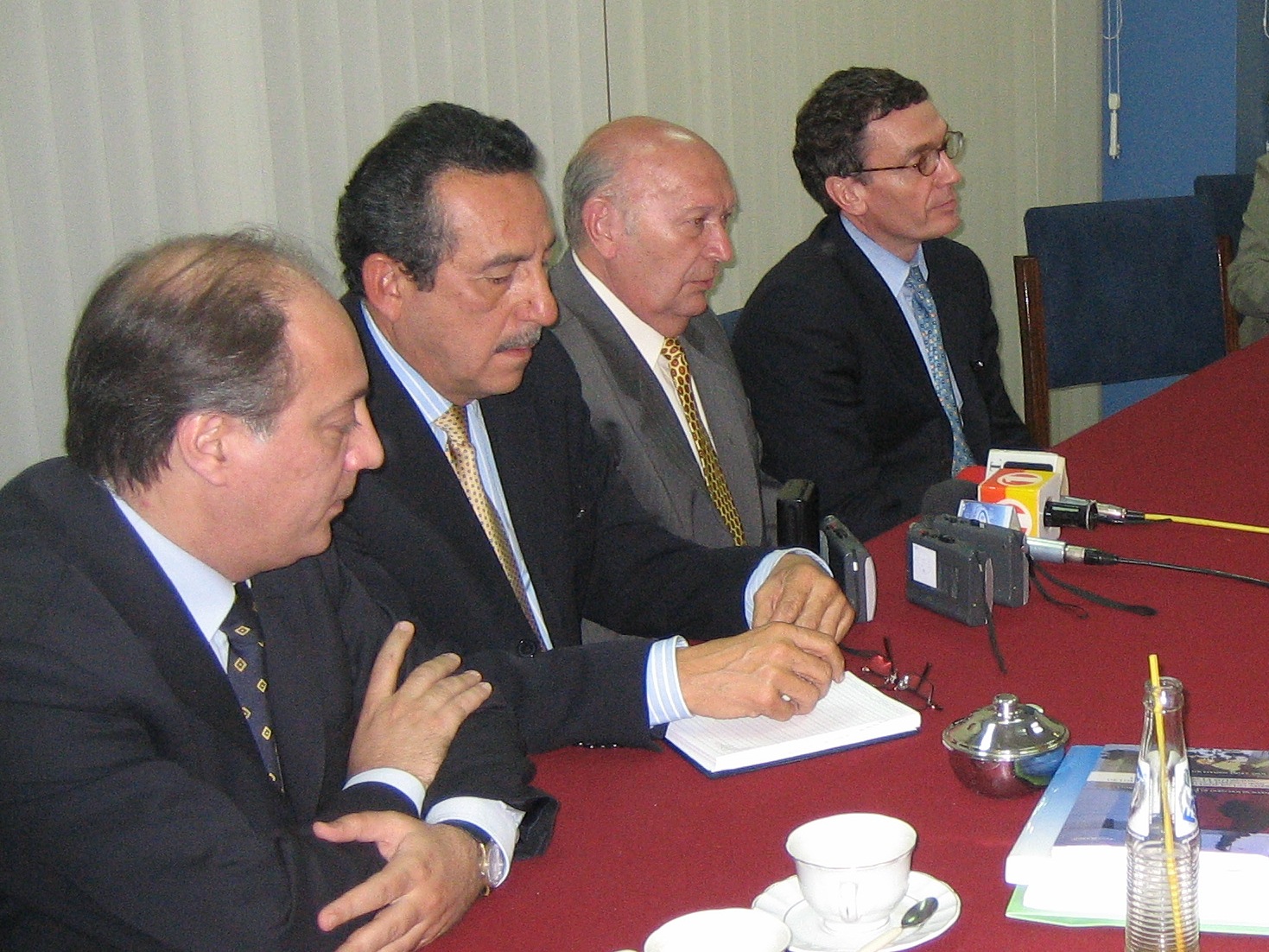
Following an invitation by the government, the Commission carried out a visit to the Republic of Bolivia November 12-17, 2006, in order to observe the general human rights situation in that country. The Commission delegation was made up of its Chair, Evelio Fernández Arévalos; its Second Vice-Chair and Rapporteur for Bolivia, Florentín Meléndez; Commissioner Víctor Abramovich; the Executive Secretary, Santiago A. Canton; human rights specialists Débora Benchoam, Silvia Serrano, and Leonardo Hidaka; and document technician Gloria Hansen.
During its stay in Bolivia, the Commission met with government authorities and held meetings with various segments of civil society. These included representatives of organizations promoting the rights of indigenous peoples, the rights of women, the rights of children, and the rights of persons deprived of liberty; representatives of campesino organizations and organizations devoted to strengthening the administration of justice; journalists; and trade union members.
At the end of its visit, the IACHR issued Press Release 46/06 . On June 28, 2007, the IACHR approved the report Access to Justice and Social Inclusion: The Road towards Strengthening Democracy in Bolivia , which was published on August 7, 2007 . In its 2009 Annual Report, the IACHR published a Follow-Up Report in which it analyzes the State’s compliance with the report’s recommendations.
2005
Haiti, November 2 - 5, 2005
A third visit to the Republic of Haiti was conducted from November 2 to 5, 2005 by the Commission together with UNICEF’s Regional Office for Latin America and the Caribbean. The delegation was headed by Paulo Sérgio Pinheiro, IACHR Commissioner and Children’s Rapporteur and the United Nations Secretary General’s Independent Expert for the Global Study on Violence against Children, and by María Jesús Conde, UNICEF’s Regional Advisor on Child Protection for The Americas and the Caribbean. During its visit, the delegation met with the Minister of Justice, United Nations agencies, representatives of international organizations and of civil society, and with Haitian children and adolescents. The delegation also visited children’s detention centers and the border with the Dominican Republic. At the end of its November visit, the delegation expressed its profound concern at the grave violations of the human rights of Haitian children and adolescents being committed as part of the ongoing violence in the country and drew attention to the effects on children of the lack of an adequate justice system.
- Press Release 37/05 – IACHR and UNICEF Regional Office in Latin American and the Caribbean conclude their visit to Haiti
- Press Release 36/05 – IACHR and UNICEF Regional Office in Latin America and the Caribbean to conduct a visit to Haiti
Guatemala, July 18 - 21, 2005
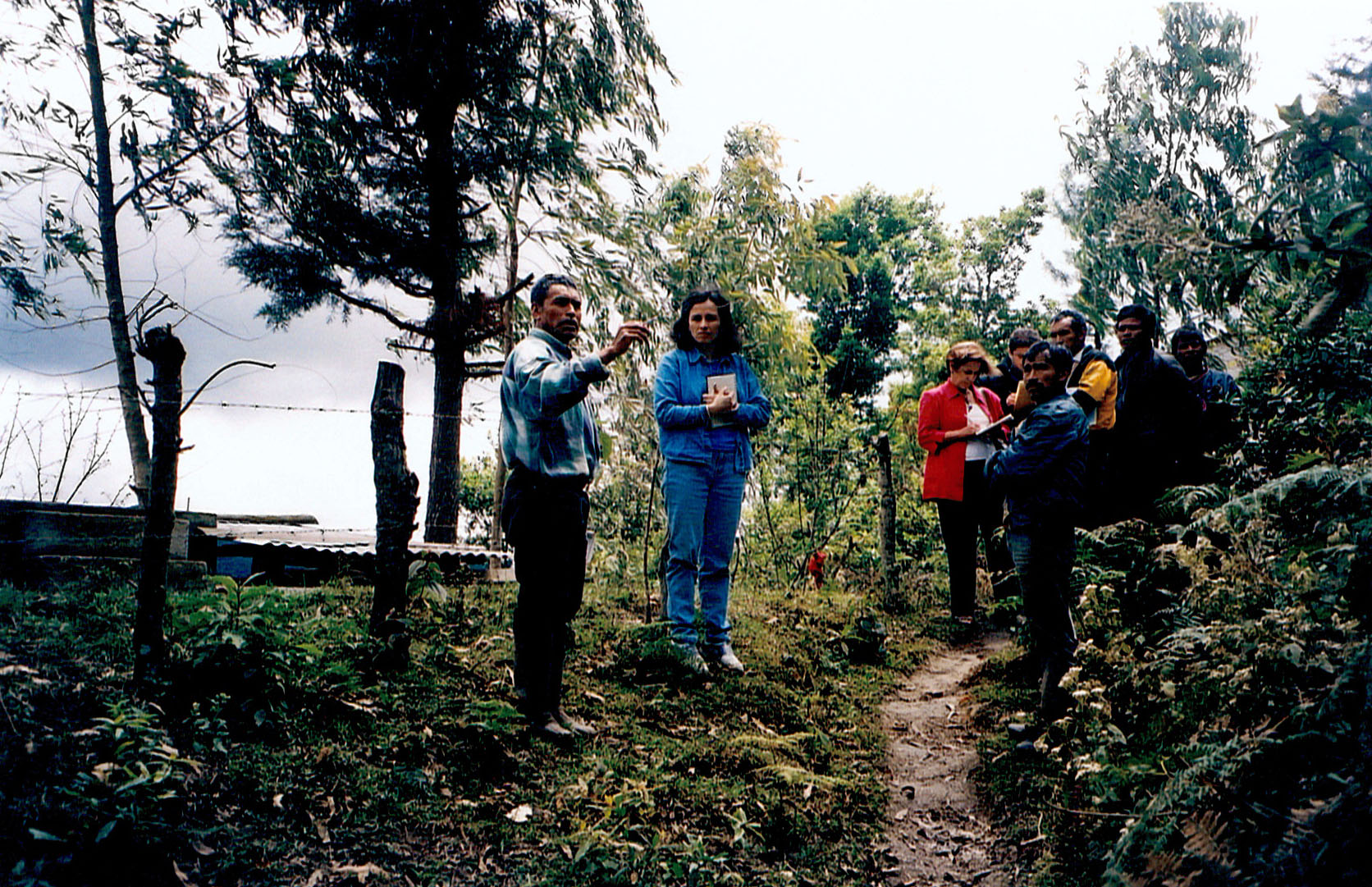
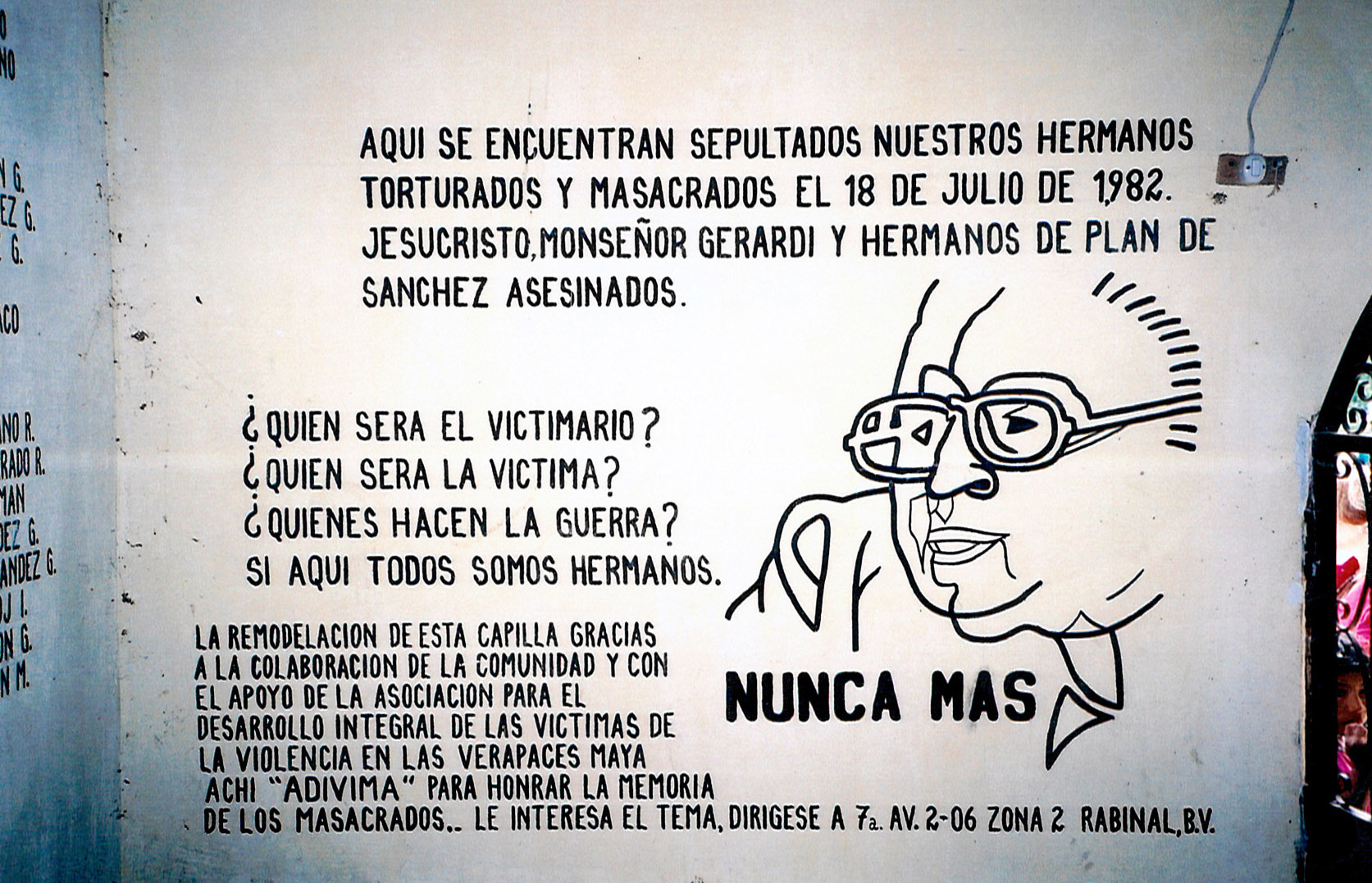
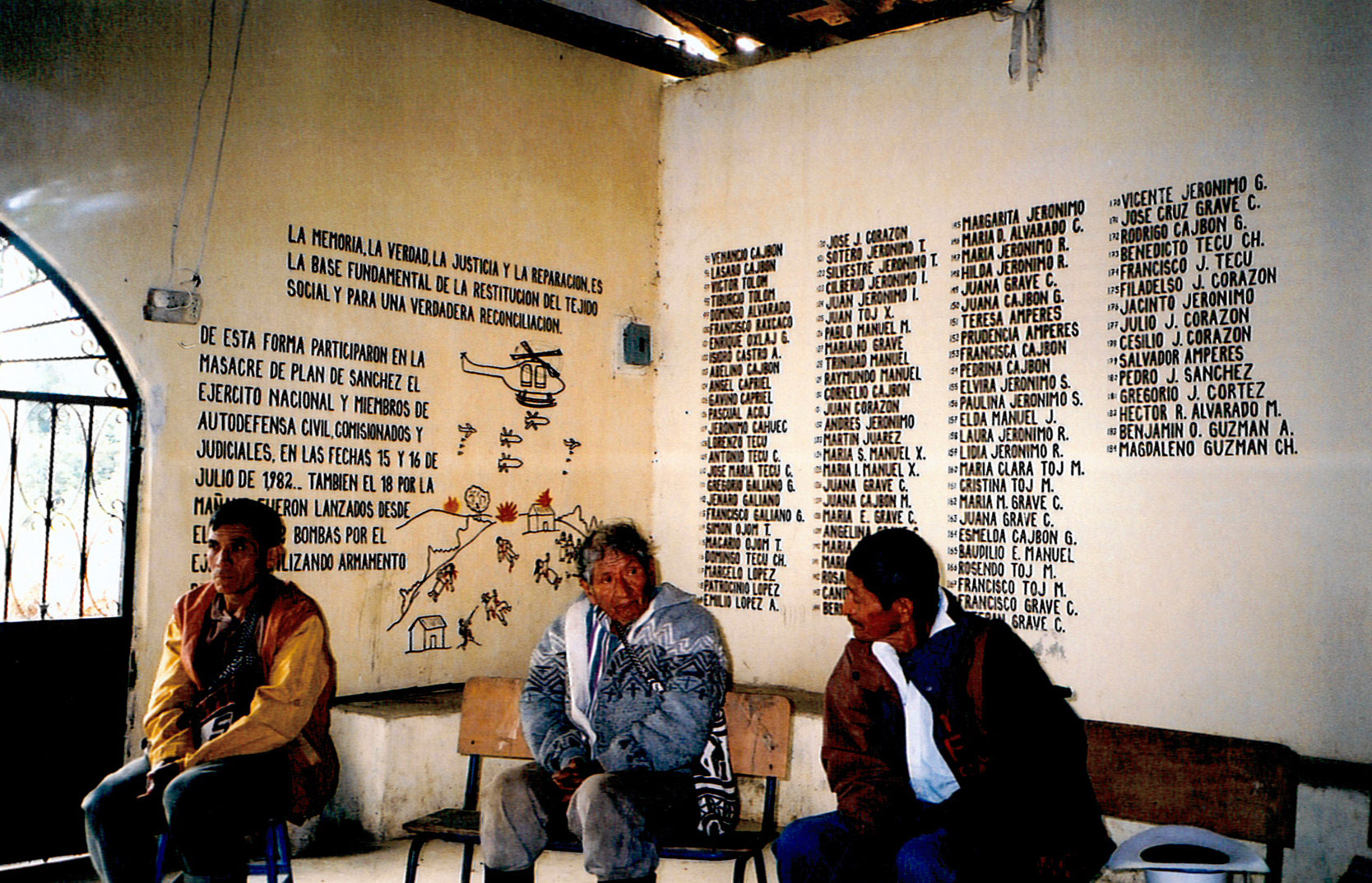
The First Vice-Chair of the IACHR and Rapporteur for Guatemala, Susana Villarán, visited Guatemala July 18-21, 2005, at the invitation of the government and at the request of civil society representatives, with financial support from the European Commission. In the course of her visit, the Commissioner met with the highest-level authorities of the State of Guatemala, as well as with victims, relatives of victims, and civil society organizations that safeguard and promote human rights in the country. In this context, working meetings were held on five cases in which important agreements had been reached on friendly settlement, five cases involving follow-up to recommendations, and eight involving precautionary measures.
The Commissioner attended an act of remembrance to publicly commemorate the victims of the Plan de Sánchez massacre. This massacre took place on July 18, 1982, when members of the Guatemalan army and civilian collaborators under the army's direction executed 268 individuals, most of them Maya indigenous people. During the ceremony, Commissioner Villarán welcomed the public recognition of the State's responsibility and the request for forgiveness. She said Guatemala's commitment to the inter-American system had been reinforced, opening the door for healing the community of Plan de Sánchez and taking steps to ensure that these types of human rights violations do not happen again.
During the visit, Commissioner Villarán also presented a document on compensation for victims of human rights violations; followed up on issues of the administration of justice and violence against women; and evaluated the situation of social leaders, indigenous people, justice workers, and human rights defenders. With respect to the administration of justice, Commissioner Villarán took note of information suggesting that there are serious gaps in interagency coordination, which in many cases prevent the institutions from working effectively and in a timely manner. She also indicated that none of the institutions that played a role in the administration of justice had the necessary human and financial resources to properly carry out its mandates.
At the end of her visit, the Commissioner noted with concern the increased level of violence and the persistence of serious shortcomings in the Guatemalan justice system, which heightened the feeling of insecurity among the population. She indicated that this situation was especially acute for indigenous leaders, social leaders, peasants, youth, and justice workers, who have been victims of threats and hostile acts. In this respect, Commissioner Villarám underscored the importance of strengthening institutional support and training in human rights through the adoption of a coordinated security policy by the various actors involved in the administration of justice in the country.
2003
Guatemala, March 24 - 29, 2003
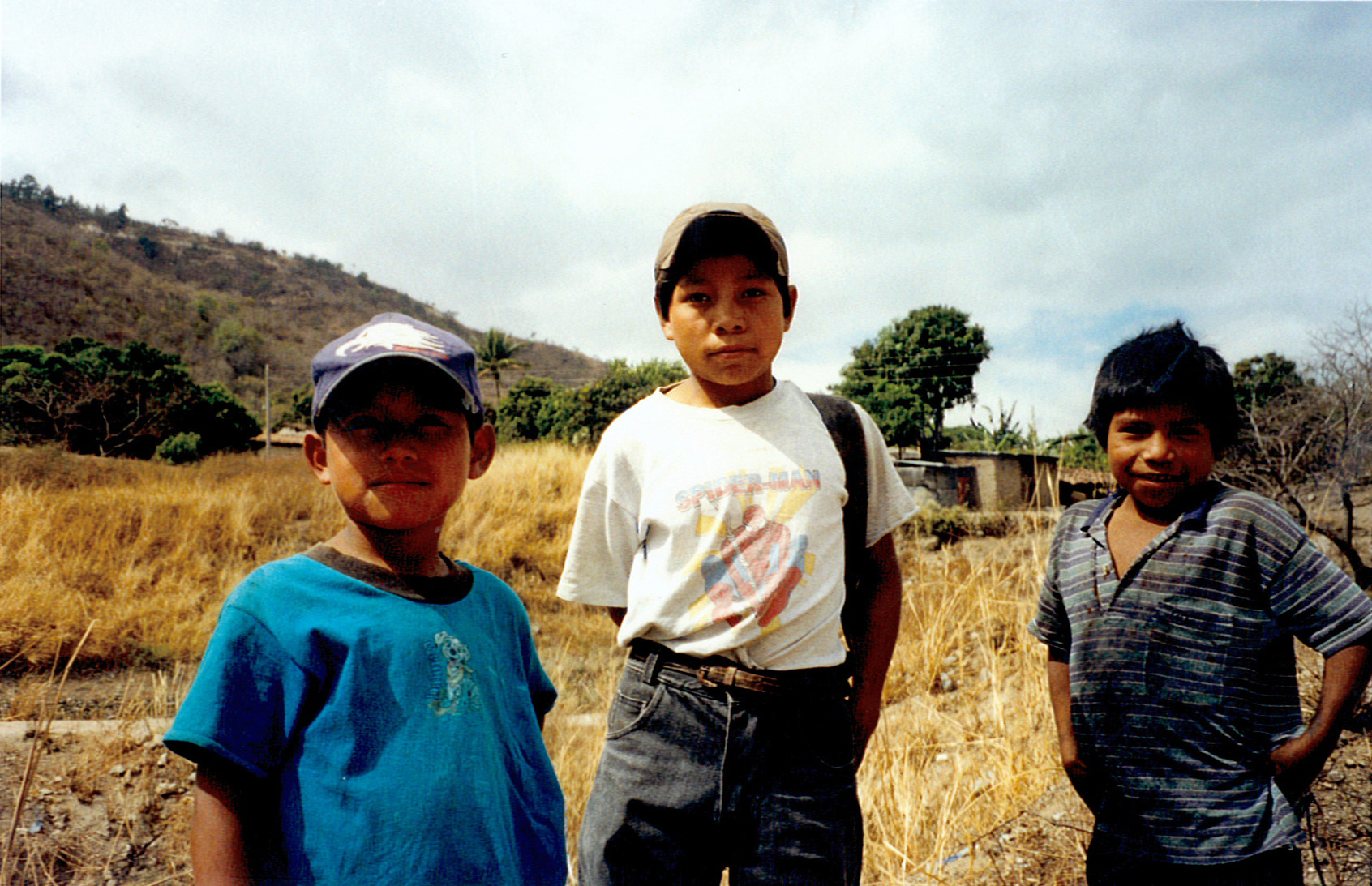
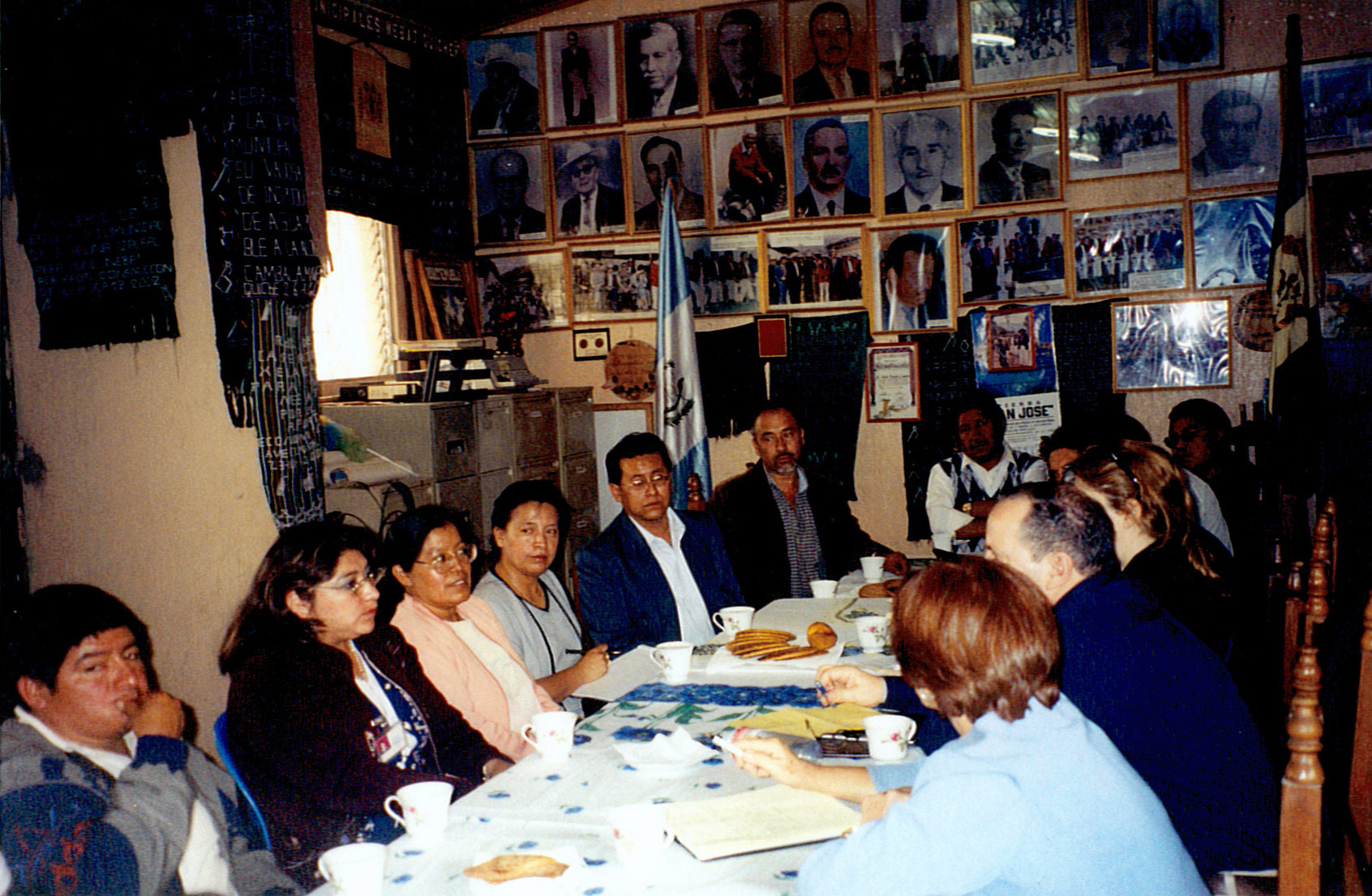
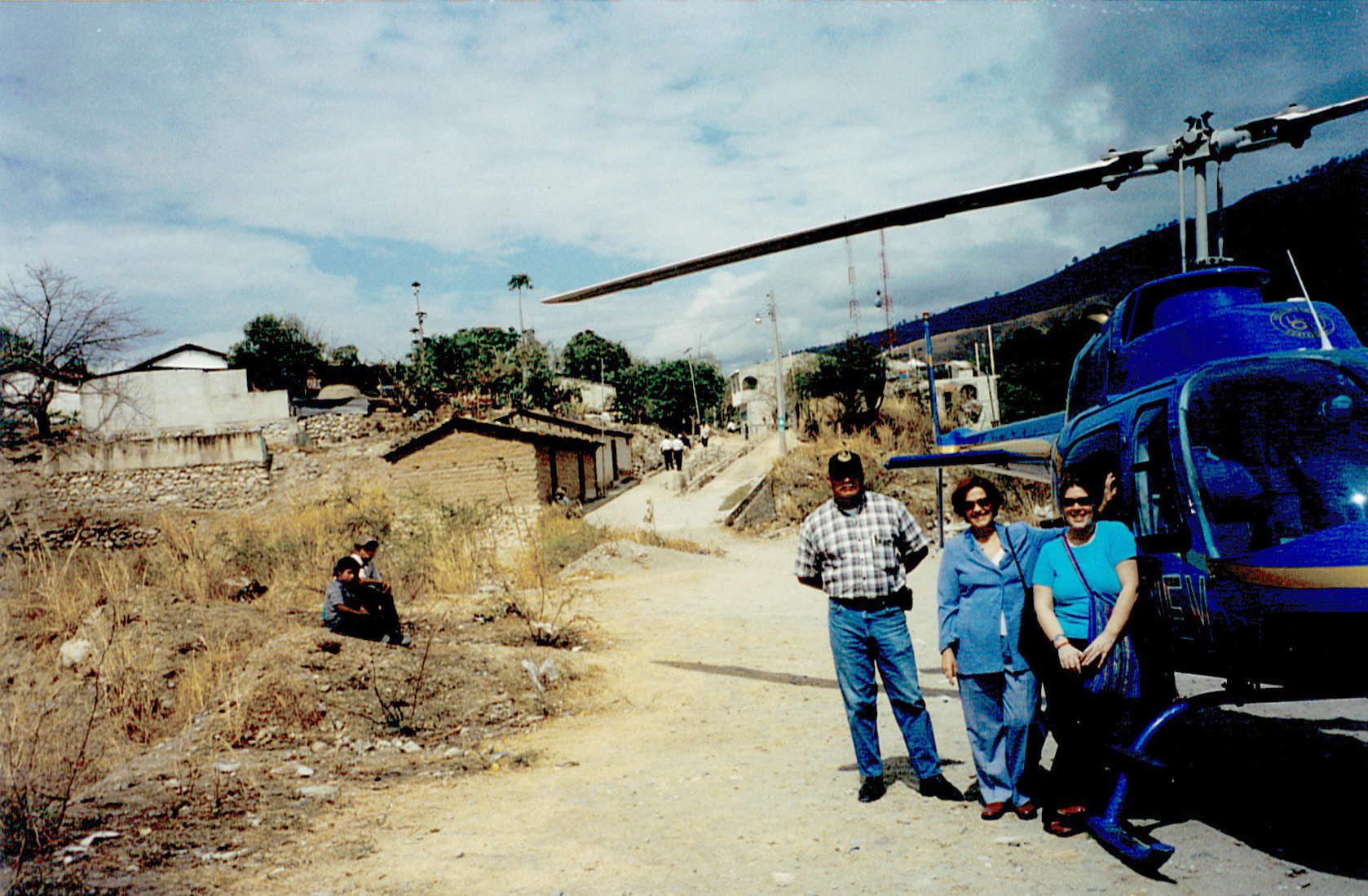
Following an invitation by the Guatemalan government, the Commission carried out an onsite visit to the Republic of Guatemala March 24-29, 2003. The IACHR delegation for this visit was composed of its First Vice-Chair, José Zalaquett; its Second Vice-Chair, Clare K. Roberts; Commissioner and Rapporteur for Guatemala Susana Villarán; Commissioners Juan E. Méndez and Julio Prado Vallejo; the IACHR Executive Secretary, Santiago A. Canton; and staff of the Executive Secretariat.
During its visit, the IACHR met with authorities from the different branches of government and with representatives of civil society. It also received testimony from victims of human rights violations, and a delegation traveled to Nebaj, in the department of Quiché. In addition, the Commission received those who wished to denounce alleged human rights violations or receive information about the workings of the inter-American system for the protection of human rights.
At the end of the visit, the IACHR published its preliminary observations in Press Release 8/03 . On December 29, 2003, the IACHR approved the report Justice and Social Inclusion: The Challenges for Democracy in Guatemala (available only in Spanish), which was presented to President Oscar Berger on March 22, 2004, at the National Palace. In its 2004 Annual Report, the IACHR published a Follow-Up Report on the State’s compliance with the recommendations included in the aforementioned report.
2002
Guatemala, July 23 - 26, 2002
A delegation of the IACHR, led by Commissioner Susana Villarán and the Executive Secretary, with the participation of the Unit for Human Rights Defenders, visited Guatemala to evaluate the situation of defenders in that country. During the visit, the delegation met with government authorities and representatives of different sectors of civil society. It also participated in the Second Regional Consultation on Human Rights Defenders and the National Workshop on Human Rights Defenders, both held in Guatemala City.
Venezuela, May 6 - 10, 2002
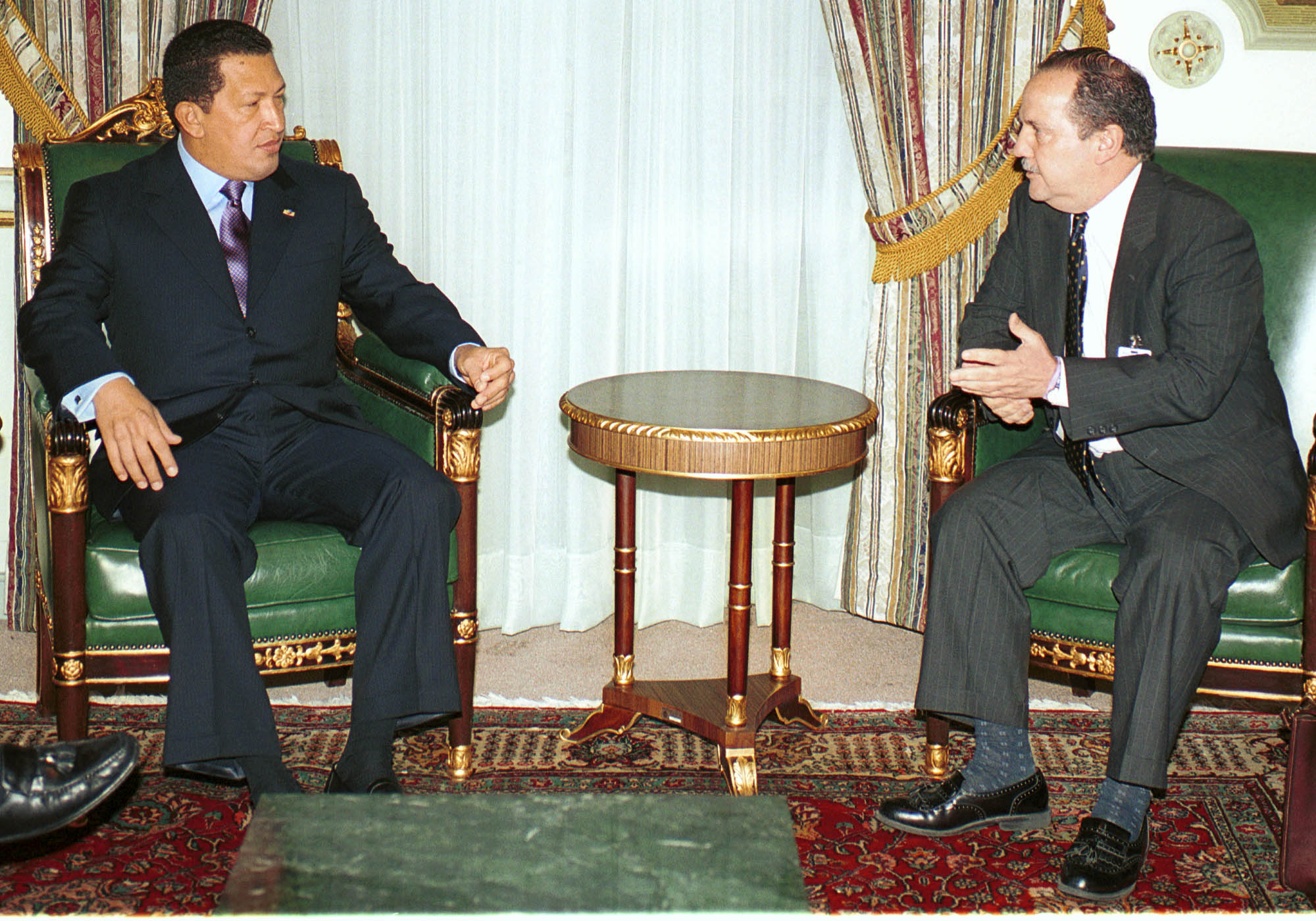
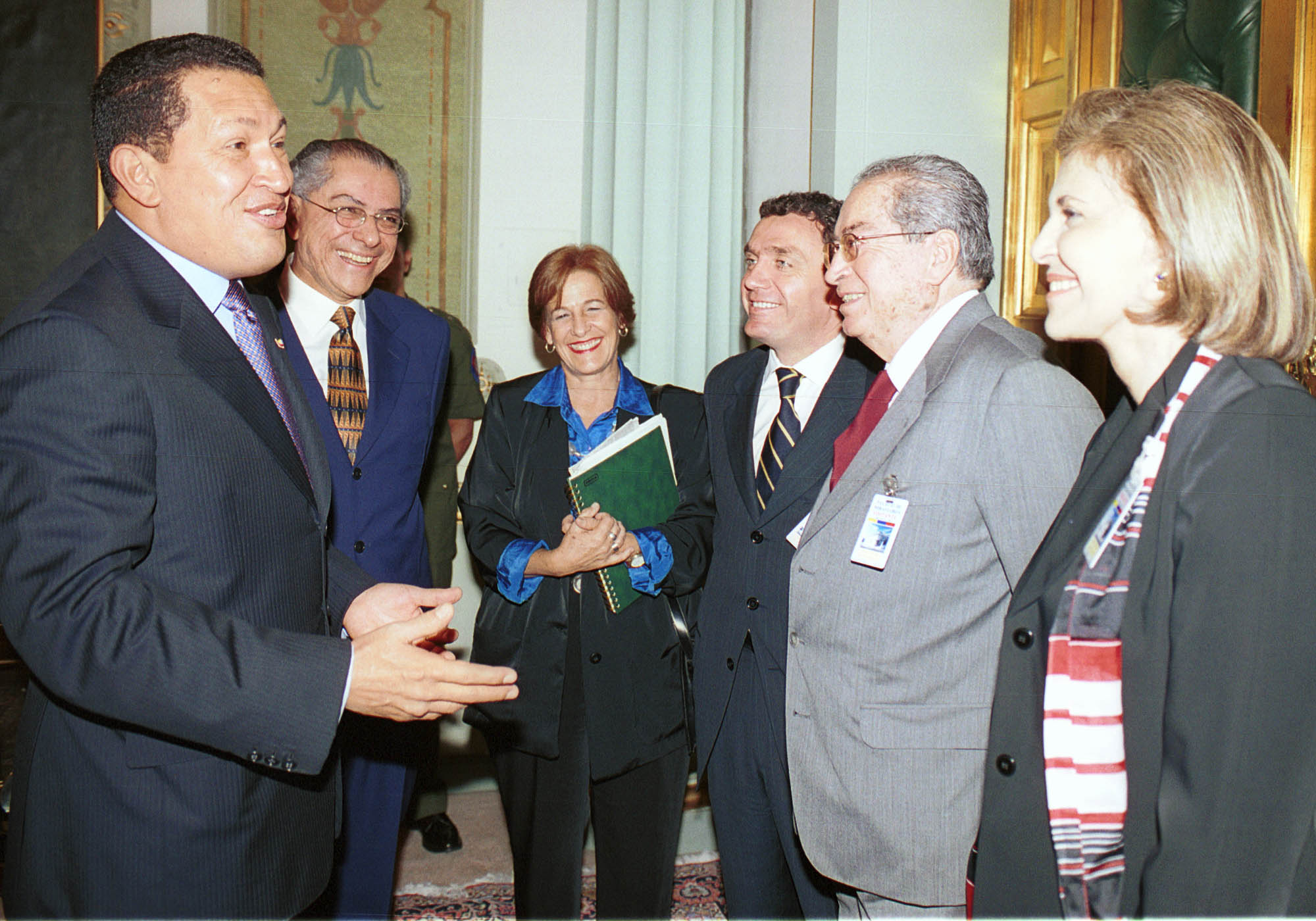
The Commission carried out an onsite visit to the Bolivarian Republic of Venezuela in May 2002, which included the participation of the Chair of the Commission and Rapporteur for matters related to Venezuela, Juan E. Méndez ; the First Vice-Chair, Marta Altolaguirre; and Commissioners Robert K. Goldman, Julio Prado Vallejo, and Susana Villarán. Also participating in the visit were Executive Secretary Santiago A. Canton; the Special Rapporteur for Freedom of Expression, Eduardo Bertoni; and staff of the Executive Secretariat.
During the visit, the IACHR met with authorities of the different branches of government, including the President of the Republic, Hugo Chávez Frías. The IACHR also met with the highest-level authorities of the National Assembly, the Commission on Justice and Human Rights, and the Supreme Court of Justice. It also met with nongovernmental human rights organizations, representatives of the Venezuelan Episcopal Conference, political leaders, journalists and representatives of media outlets, representatives of trade union associations, victims and relatives of victims, and other representatives of civil society at the national and local level. The IACHR maintained contact with international bodies and received information and testimony on the situations in all regions of the country, especially the state of Portuguesa, to which a delegation traveled.
On October 24, 2003, the IACHR approved the Report on the Situation of Human Rights in Venezuela . The report’s publication was announced in Press Release 9/04 .
2001
Colombia, December 7 - 13, 2001


The IACHR carried out an onsite visit to Colombia December 7-13, 2001, at the invitation of the government of President Andrés Pastrana. The delegation was made up of the Chair of the IACHR, Claudio Grossman; the First Vice-Chair, Juan E. Méndez ; the Second Vice-Chair, Marta Altolaguirre; and Commissioners Robert K. Goldman, Hélio Bicudo, Peter Laurie, and Julio Prado Vallejo. It also included the Executive Secretary and Rapporteur for Freedom of Expression, Santiago A. Canton; human rights specialists Verónica Gómez, Mario López-Garelli, and Ignacio Álvarez; and documentation specialist Gloria Hansen and administrative assistants Gabriela Hageman and Gloria Molina. The IACHR delegation was also accompanied by attorney Débora Benchoam and journalist Victoria Amato, of the Office of the Special Rapporteur for Freedom of Expression.
During the visit, the IACHR met with authorities of the three branches of government, including President Andrés Pastrana Arango. It also held meetings with nongovernmental human rights organizations; religious representatives; political leaders; journalists and representatives of media outlets; representatives of associations representing campesinos, ethnic groups, and women; trade union members; and other civil society representatives at the national and local level. The IACHR maintained contact with international bodies such as the Office of the United Nations High Commissioner for Human Rights (UNHCHR) and the International Committee of the Red Cross. It also received information and testimony on the situation in all regions of the country, especially in Cundinamarca, Antioquia, Magdalena Medio, Arauca, Valle, Cauca, Putumayo, Nariño, Tolima, and Catatumbo. The full Commission met with presidential candidates Luis Eduardo Garzón, Horacio Serpa Uribe, and Álvaro Uribe Vélez.
At the end of its visit, on December 13, 2001, the IACHR issued a press release .
1999
Paraguay, July 28 - 30, 1999
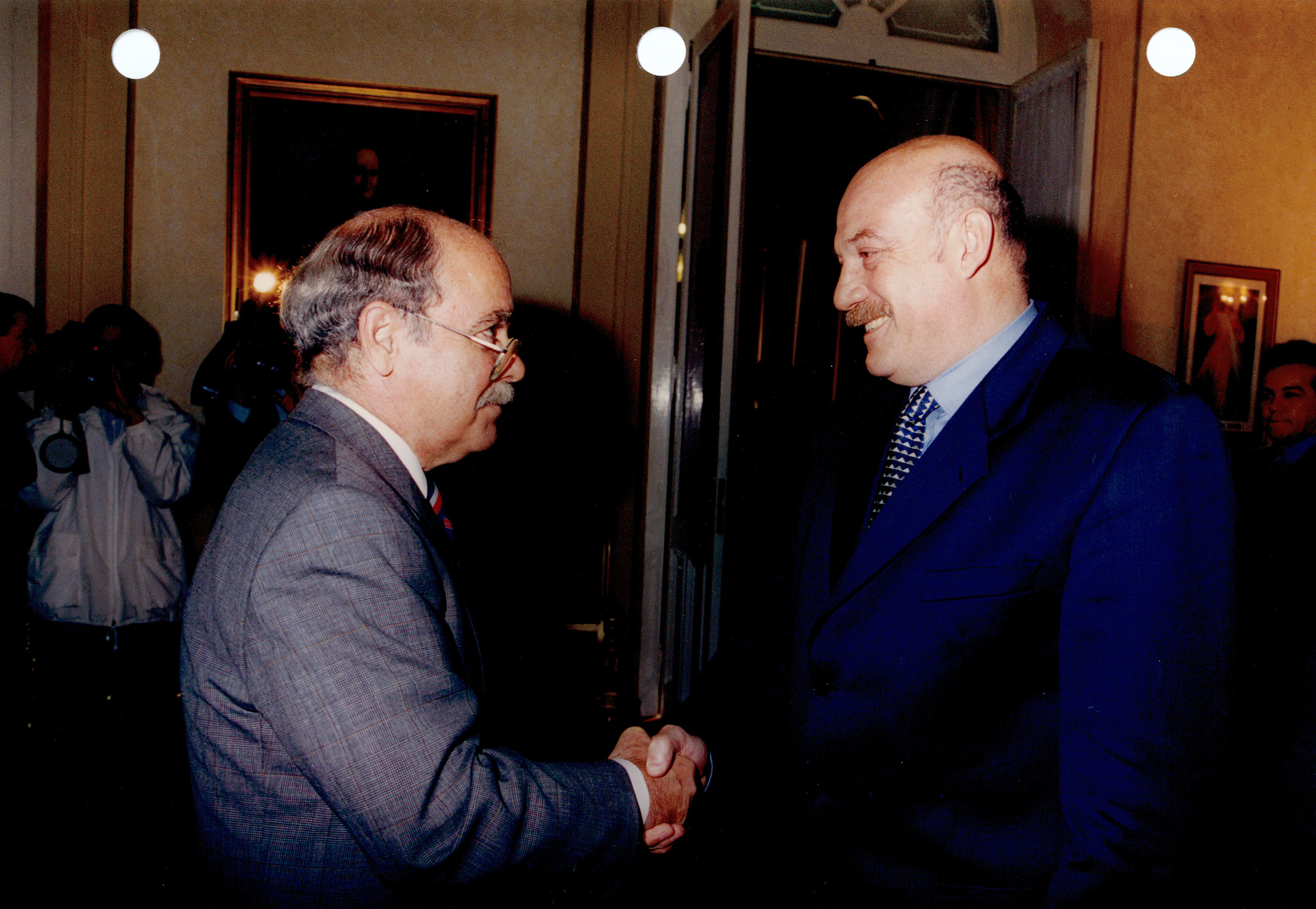
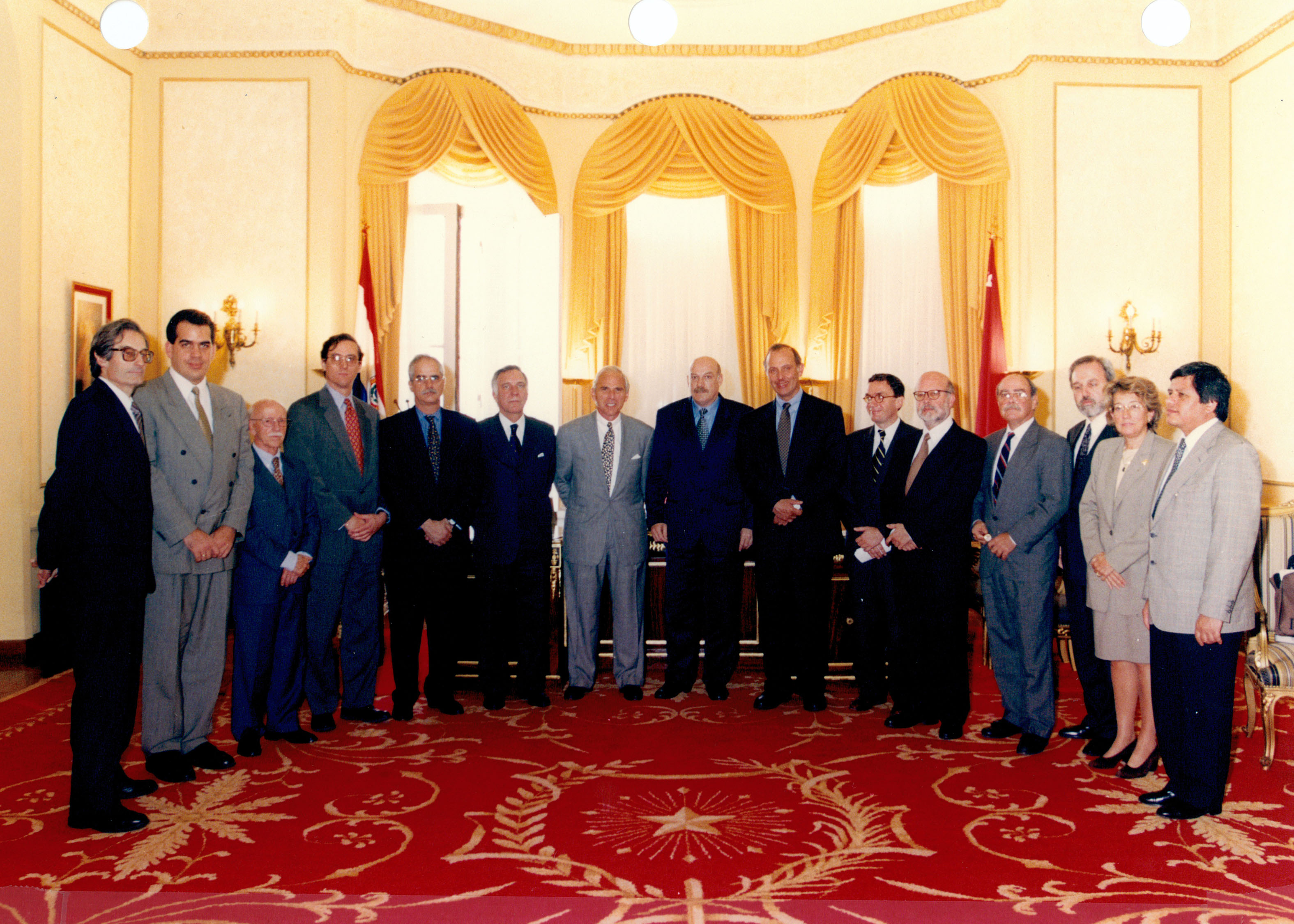
The July 1999 visit to Paraguay included the participation of the IACHR Chair, Robert K. Goldman; the First Vice-Chair, Hélio Bicudo; the Second Vice-Chair, Claudio Grossman; Commissioners Carlos Ayala Corao and Álvaro Tirado Mejía; Executive Secretary Jorge E. Taiana and Assistant Executive Secretary David J. Padilla; the IACHR Special Rapporteur for Freedom of Expression, Santiago A. Canton; and attorneys Ignacio J. Álvarez and Christina M. Cerna.
During the visit, the IACHR met with authorities of the executive branch, including the President of the Republic, Luis Ángel González Macchi; authorities of the judicial and legislative branches; and with different sectors of civil society, such as human rights organizations, representatives of the Church, groups of campesinos and indigenous communities, union leaders, alleged victims of human rights violations, and others. The Commission also visited several prisons and traveled to different regions of the country.
At the end of the visit, the Commission issued Press Release 23/99 . On March 9, 2001, the IACHR approved the Third Report on the Situation of Human Rights in Paraguay . The report’s publication, on March 21, 2001, was announced in Press Release 5/01 . In its 2001 Annual Report, the IACHR published a Follow-Up Report on the State’s compliance with the recommendations in the report.
